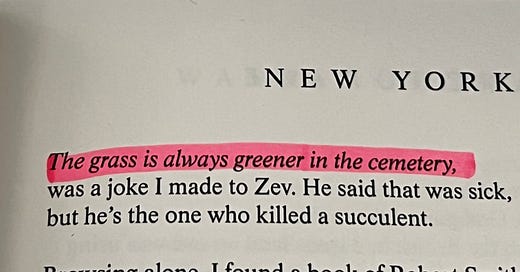If you find value in what I write and read this newsletter regularly, please consider financially supporting its creation by becoming a paid subscriber.
If you were reading this newsletter last summer you might remember that I was unceremoniously thrown out by no less than 30 mice (yeah, imagine cleaning up that p00…
Keep reading with a 7-day free trial
Subscribe to How To Cure A Ghost to keep reading this post and get 7 days of free access to the full post archives.





